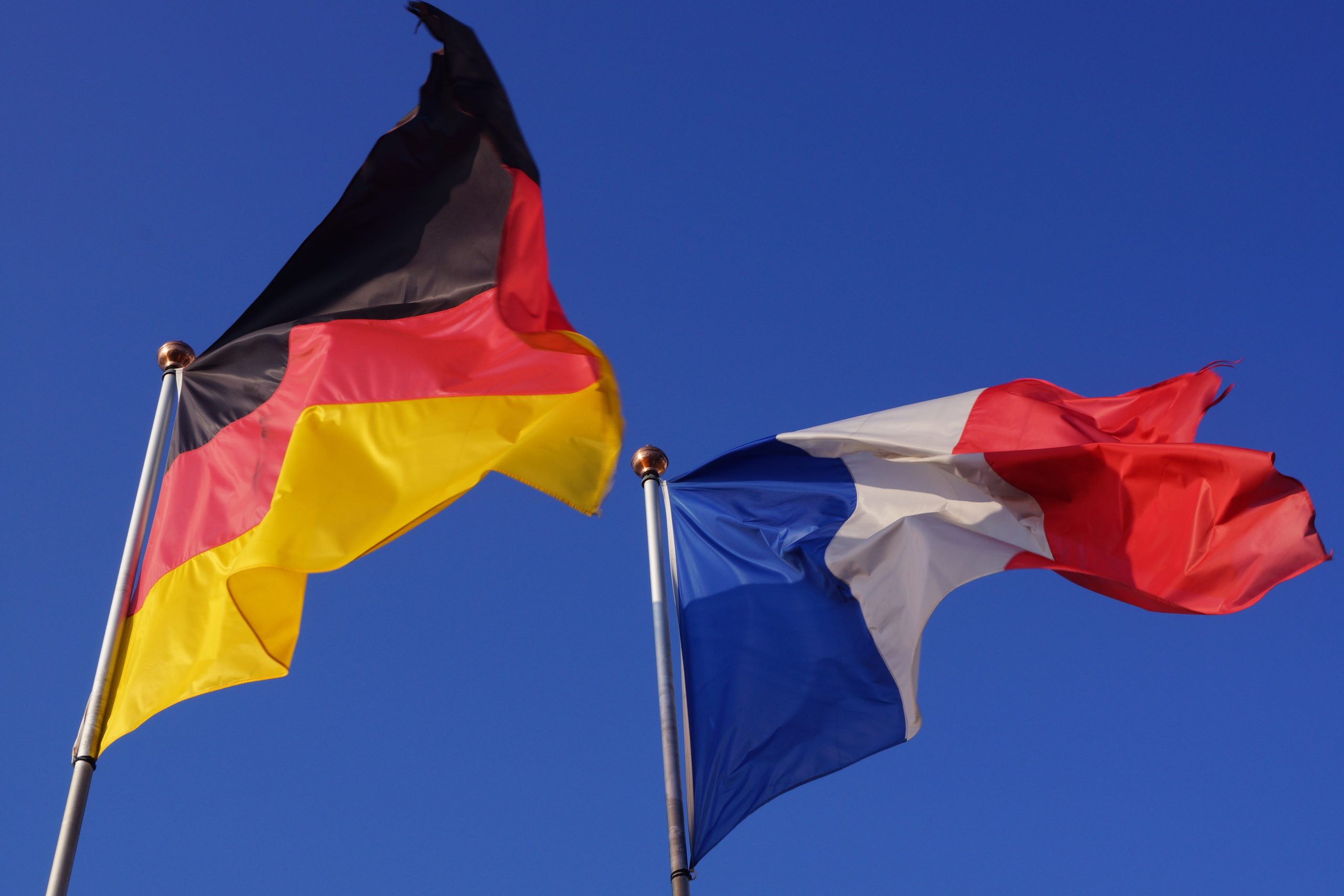After one year of war in Ukraine, it is evident that European countries must significantly increase their defence spending and rebuild their capabilities. Whilst it is true that Germany has taken some independent steps forward regarding defence, this is not detrimental to collective European defence efforts. In fact, greater Franco-German cooperation (and a more defence-minded Germany in general) will be absolutely crucial for strengthening European defence efforts and Europe’s overall autonomy.
During the recent Munich Security Conference, Chancellor Scholz insisted on the need for the EU to strategically pull their efforts together over armaments policy. President Macron further called for an ambitious European programme for defence investments which could be pursued through the European Defence Fund. Most importantly, Macron further invited his European partners to consider the importance of the nuclear factor in the current conflict and thus the role of nuclear deterrence for Europe’s security, and how the EU and NATO can better complement each other.
This is a critical assessment since all conventional EU efforts, including missile defence, will not be able to provide a full guarantee of effectiveness against current and/or future threats from existing or potential nuclear actors. It’s a simple fact that only nuclear weapons ultimately matter in a war or conflict with another nuclear-armed state.
As France is the only EU country with an independent nuclear deterrent, it would be also crucial that in-depth consultations on this issue be held bilaterally with Germany, and more generally at the EU level, to strengthen European security.
This could take the form of a dialogue on nuclear deterrence with European partners interested in vital European defence interests, as expressed by President Macron in February 2020 and again at the Munich Security Conference. In the longer run, the possibility might even be explored that Germany (and other European partners) may seek complementarity with the maritime component of the French nuclear force to ensure more presence at sea and closer co-operation for European strategic autonomy.
In the shorter term, Germany and France can continue to deepen their engagement in conventional defence. Germany’s dramatic decision and historic foreign policy shift to invest EUR 100 billion in a programme to improve its own defence capabilities (even though it has yet to materialise large-scale spending through this programme), on top of the regular budget of around EUR 50 billion, will eventually make it the world’s third-largest military spender after the United States and China. Since Germany had been consistently lacking in its defence investments over the past few years, it will no doubt first fill critical shortfalls in capabilities, but it could also eventually allow for greater investment in joint European defence projects.
All of this has caused some questions to arise in the Franco-German bilateral relationship over the past few months, with Germany mostly catering to its core industrial defence interests, including the recent agreement to jointly acquire an air and missile defence shield with 14 NATO countries, the so-called European Sky Shield Initiative.
This decision annoyed France, which had voluntarily remained outside the project so it could support future European autonomy. The German company Rheinmetall recently hinted at discussions with the American company Lockheed Martin to produce the HIMARS system in Germany. In March 2022, Germany also decided to purchase 35 American F-35 Lockheed Martin fighter aircraft to replace its ageing fleet of Tornadoes and 15 Eurofighter Typhoons to further bolster its air force. In theory, the F-35s could also be used to carry tactical nuclear weapons for NATO.
All of this could be suspected of undermining rather than complementing key projects being undertaken by Germany’s European partners in conventional defence, especially France, notably the two countries’ joint exceptional FCAS (future air warfare) programme, which was later extended to Spain, and its equivalent MGCS (future ground warfare system) programme.
But this impression hides a deeper reality. German re-armament will not be a barrier but could be an enormous boost not just to Europe’s defence capabilities, but also to the integration of European defence industries. Such a boost in defence could even be compared to the subtle – but powerful – link between German re-unification and the creation of the euro.
Indeed, Germany has committed to pursuing both FCAS and MGCS as key instruments for integrated European defence procurement. FCAS should provide a next generation joint European Combat Air System, considered a key component of Europe’s strategic autonomy, whilst MGCS will act as a successor to the French Leclerc and German Leopard II main battle tanks.
Although the FCAS undertaking is at a very early stage, the agreement signed between Dassault and Airbus last December 2022 represents an important milestone for this Franco-German project to finally gain momentum given previous difficulties in bridging industrial divisions over technology. This landmark contract that will work on the aircraft demonstrator and its components over 3.5 years doesn’t yet, however, represent a fully-fledged industrial programme. It is nevertheless even more significant in the longer run since FCAS could also deal with the airborne component of the French nuclear deterrent.
Whether it is through the nuclear dimension or the necessary rearmament policy across European countries, Germany and France must increase their collaboration efforts in systems and technology development and, above all, support for the development of a more integrated European defence industrial base.
Dr Karine de Vergeron is the Associate Director and Head of Europe Program at the Global Policy Institute, London/Vienna.
This Expert Commentary was contributed through the Euro-Atlantic Triangle project.


